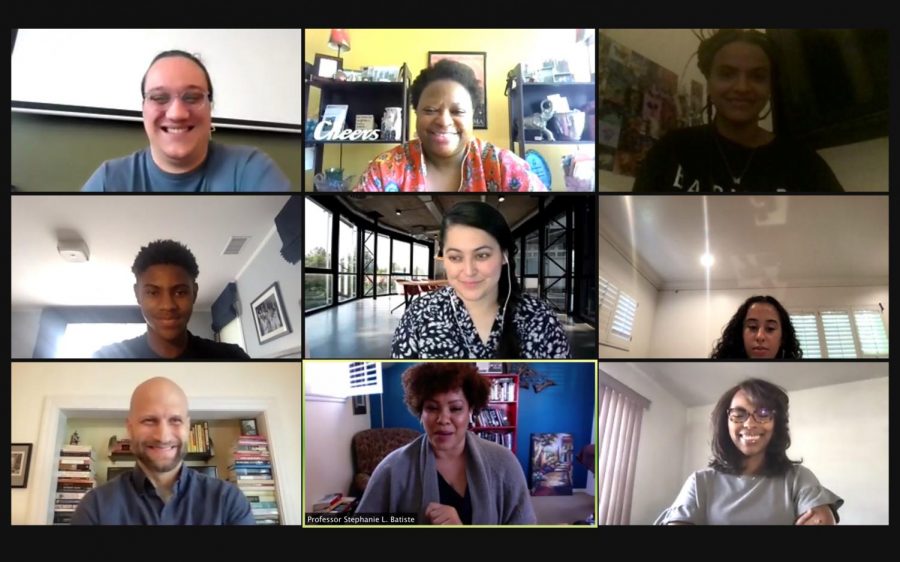Kutler Center Scholar in Residence leads community discussion about Hurricane Katrina’s legacy
Kutler Center Scholar in Residence Stephanie L. Batiste ’90 shares her personal story regarding Hurricane Katrina and how her family was affected by it.
May 9, 2021
Following the English II faculty screening of Spike Lee’s documentary film “When The Levees Broke: A Requiem In Four Acts,” Associate Professor of Black Studies and English at University of California Santa Barbara (UCSB) and this year’s Kutler Center Scholar in Residence Stephanie Batiste ’90 led a discussion about the inequity and infrastructural issues in the aftermath of Hurricane Katrina on May 8.
The screening and discussion were a pretext to the English II’s reading of Jesmyn Ward’s “Salvage The Bones,” a novel about a Black family taking on the hardships of Hurricane Katrina. Tyler Sage moderated the discussion and speakers from the HW Parents’ Association Diversity, Equity and Inclusion (DEI) Committee, the DEI office, the deans’ office, Black Leadership and Culture Club (BLACC) members and faculty participated in the conversation. The event was open for all students, however heavily recommended for sophomores to attend.
Batiste discussed her personal connection to Hurricane Katrina during the discussion.
During the discussion, Batiste reflected on the displacement of some of her family members from New Orleans because of the hurricane. She explained that there are multiple critical issues to consider in regards to the course of the hurricane: lack of preparedness, failure of infrastructure, contaminated water and the disposability of populations within New Orleans.
“Something that we see here is the nature of American poverty,” Batiste said. “So while New Orleans has this shiny French Quarter front and this deep historical, multinational, multilingual jazz history that is so beautiful and meaningful to all of us, it completely scattered with Katrina. The untold story that gets told through the aftermath of the hurricane is the lack of resources that people had to save themselves, and at the same time they worked so hard to save each other.”
Student participants in the event said they were emotionally impacted by what they learned at the event.
BLACC Leader Cameron Herring ’21 said she was affected the most in hearing that in the past during other hurricanes, levies and barriers were broken so that water would flow into the poorer areas of Louisiana, disproportionately impacting the Black people living there and furthering the damage done during Hurricane Katrina.
“Seeing people that look like myself being put into this position, knowing that if I were them, no one would help me either was very difficult to process as a young person seeing the lack of response from leadership, when they had the ability to do more,” Herring said.
BLACC member Judah Marley ’23 said she was shocked after watching the atrocities of the hurricane in depth and hearing about the treatment of minorities and those with low socioeconomic status upset her greatly. She also lamented the fact that many of those with money and resources who did not help during the time.
“Historically and even now, [Black people] have been seen as purely statistics,” Marley said. “People don’t realize that these people that are living in poverty are real people with real families. It angers me seeing people not using their privilege in the right way. If that were me and if I were able to have those resources, I would help immediately.”



























